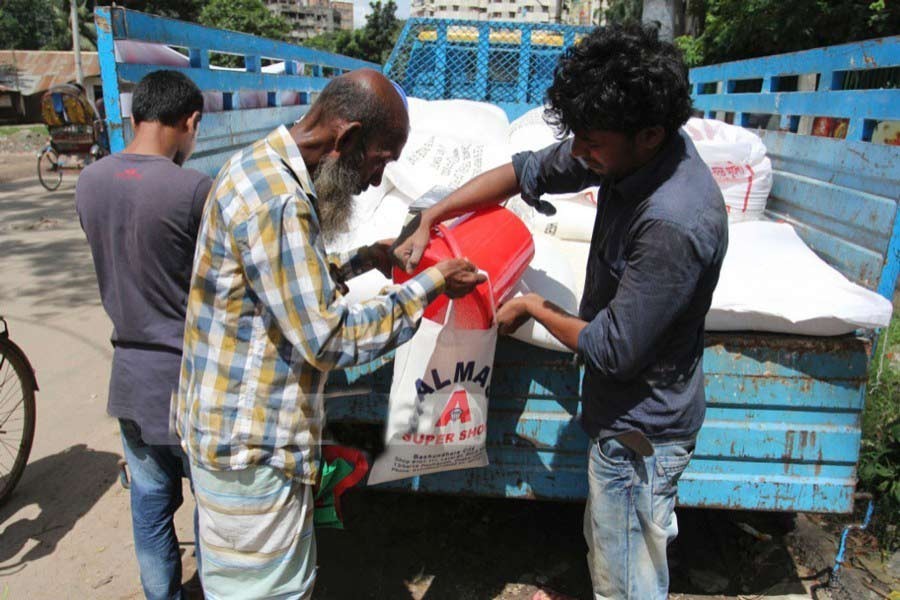The relentless rampage of deadly coronavirus has already made lives of millions of people miserable. Panic of infection coupled with fall in income turns their daily lives very uncertain. Now they are desperately looking for ways and means to survive this crisis period. Though the government has provided some relief and cash assistance to many of them, these are still inadequate.
It is also disappointing that misappropriation of relief is reported from several places. Actions have also been taken by the authorities against some of those who misappropriated relief materials. The transfer of cash assistance through mobile financial services (MFS) has, however, significantly reduced the chance of misappropriation. Some 5.0 million households have already received onetime cash assistance of Tk 2,500 per head. There is also a move to continue and extend the assistance to cover more people who are in serious trouble now.
The government has also opened up some economic and business activities partially so that people in distress may earn their livelihoods, no matter how limited those are. No doubt, the partial or scattered opening up of businesses enhances the risk of infection. The consequence may be devastating if there is a failure to maintain the health rules and physical distancing properly. It also appears that the government is struggling to mobilise adequate funds to support these low-income and marginal people for a longer period. It is not clear why small amount of money, less than 1.0 per cent of the country's Gross Domestic Product (GDP), can't be mobilised to cater for some 10 million households for at least three months. The Policy Research Institute (PRI), a local think tank, estimates that it would cost Tk108 billion (0.36 per cent of GDP) in three months to provide monthly cash assistance of Tk 2,500 to 12 million households or some 50 million people.
It is possible to mobilise a significant amount of the required fund through private charity. Many citizens have already come to provide assistance to destitute people of the country. They are doing their charities both individually and institutionally. A good number of charitable organisations are doing work in this connection by collecting and accumulating donations from rich and affluent section of society and distributing those to needy people. In fact, a large number of people of different income categories are doing their charity according to their ability.
Food and cash assistance through charity during the pandemic comes as a big support to millions of distressed people. It also helps bridge the gap left in the government assistance. Moreover, during the holy month of Ramadan, eligible Muslims are paying Zakat which is a big contribution to the charity. Muslims will also pay Fitra by the end of Ramadan and before Eid-ul-Fitr. The motivation of charity is high during the period of crisis. What is needed is to keep the spirit up and create a more conducive environment for continuation of charity.


